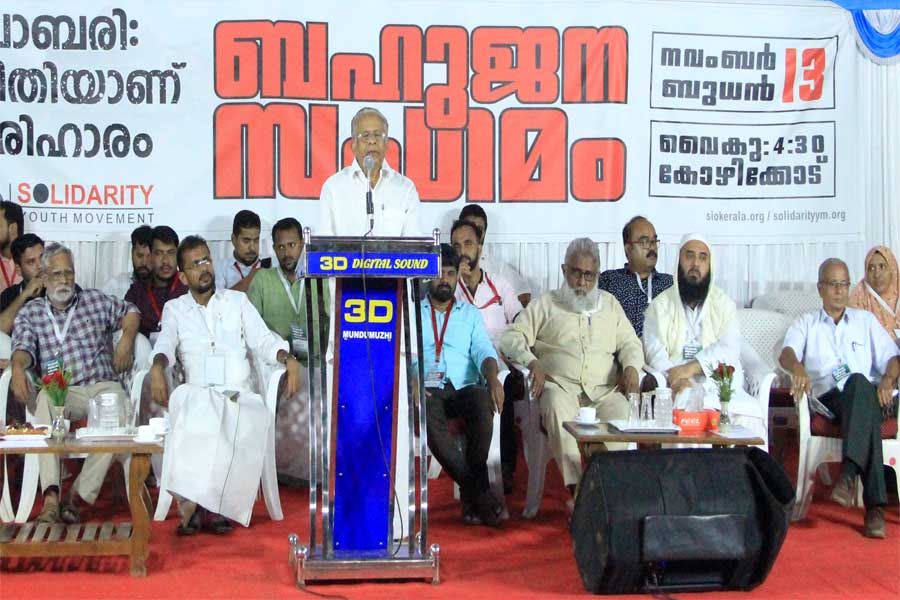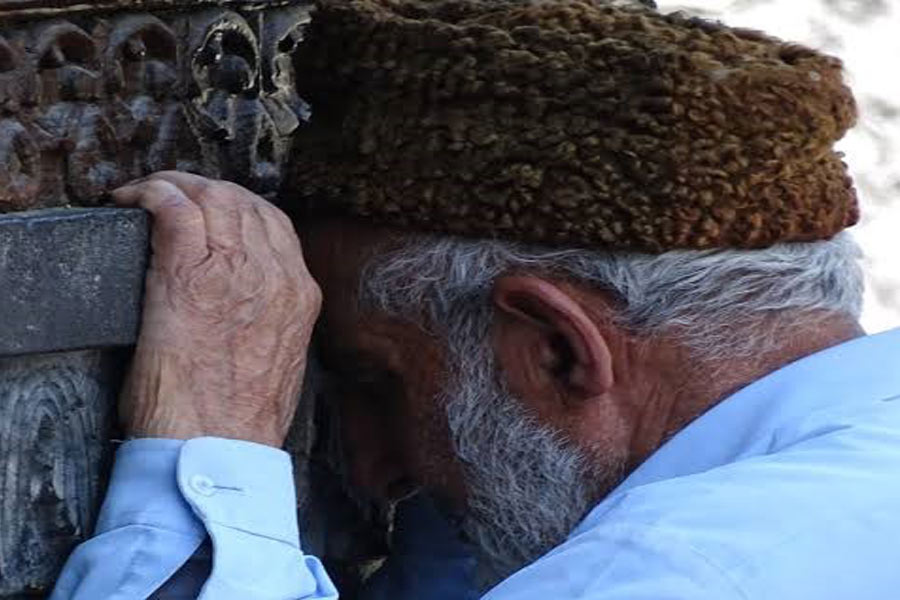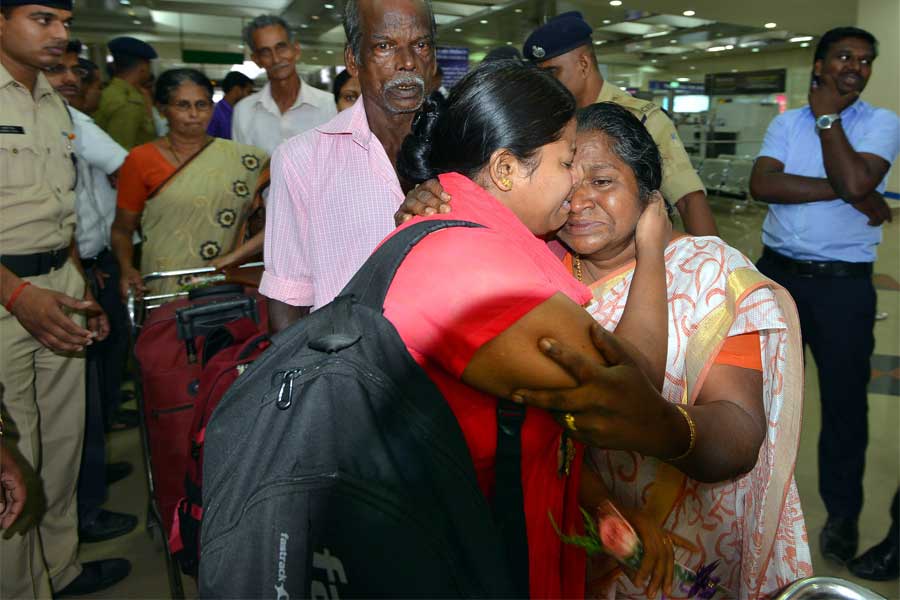Though the All India Muslim Personal Law Board (AIMPLB) has decided to file a review petition in the Supreme Court challenging its verdict on the Babri Masjid-Ram Janmabhumi dispute that continued in the courts of law for decades, the community’s response across the country appears to display a mature, pragmatic approach to a highly emotive issue.
The initial responses from the Babri Masjid Action Commitee, the All India Muslim Personal Law Board and the Uttar Pradesh Central Sunni Wakf Board, the principal parties that were involved in the litigation and public campaign on the issue of the disputed mosque, highlighted the point that the verdict was a setback to the community’s long-held claims and interests. But the question as to how to respond to the Supreme Court verdict has split the various organisations, with the Sunni Central Waqf Board and the other principal litigants in the case opting to accept the verdict and put an end to this unhappy chapter in India’s recent history.
It is to be noted that though there are differences as to how to proceed, the public opinion in the community is now definitely in favour of finding an amicable settlement and moving on once and for all. This is evident from the reactions of most Muslim organizations who have asserted that they would pursue the quest for justice through democratic and legal means. This is a common thread in the reactions of all political parties and groups that claim to represent the Muslim community, ranging from the Indian Union Muslim League (IUML), the Welfare Party of the Jamaat-e-Islami, the All India Majlis-e-Ithihadul Muslimeen (AIMIM) of Asadudin Owaisi and the Social Democratic Party of India (SDPI). They have expressed disappointment over the Supreme Court decision to hand over the entire property to a trust for the building of a Ram temple, but generally have refused to be drawn into confrontationist and violent public actions that would further vitiate the communal atmosphere in the country.
That is a welcome change in our public life. The significance of the new approach of toning down the decibel levels and refusal to play upon the emotional aspects of the case becomes evident as one recalls the atmosphere of fear, mayhem and chaos that had erupted all over the country in the wake of the destruction of the mosque by karsevaks on December 6, 1992. Both Hindu and Muslim communal organisations were vociferous and belligerent in their actions and protests even as explosions rocked many parts of India, including the series of bomb blasts in the city of Mumbai killing a large number of people. In fact, the fall of Babri Masjid brought about a situation of terrible chaos and mayhem in the country giving rise to fears of a long-drawn civil war eventually dividing the country on communal lines once again.
Looking back on those eventful days, the pertinent question is: who really benefited from those violent actions? It is now accepted by most sensible people in both the Hindu and Muslim communities that the violence served the ends of vested interests. The serial blasts in the city of Mumbai were the handiwork of gangs based in Pakistan, never known for their concern for Indian Muslims. They were, most likely, acting on the orders of an alien government or the secret agencies that belong to that government, which never had any interest in the well-being of the Indian Muslims.
But such incidents of violence gave a chance to the communal forces in the majority community who launched a physical and psychological campaign against Indian Muslims. In fact, in the post-Babri period, attacks on Muslims in India became a mainstream activity, well-organised assaults often with tacit backing from the official agencies. There were umpteen incidents of assaults on members of the Muslim community taking place in every part of India, with very little official action to thwart such incidents or render justice to the victims.
Gujarat in particular witnessed a substantial number of assaults on the Muslim community in the post-Babri, post-Godhra days. Most recently, Shamima Kausar, mother of Ishrat Jehan, a 19-year-old girl who was shot dead by the Gujarat police special forces in an alleged encounter in 2004, has informed the CBI court that she was withdrawing from appearing in the case as a petitioner, feeling “hopeless and helpless” after 15 years of a lonely struggle for justice. She pointed out in her letter that most of the alleged perpetrators of the violent act have been discharged from the case and many of them already reinstated in government service, without even a proper trial of the case.
This is not an isolated incident. Across the country, there is a sense of being overwhelmed by misfortunes among the members of the Muslim community. The rising incidents of arrests on charges of unlawful activities under the draconian legislation of UAPA, the mob lynching of Muslim traders dealing with cattle in many parts of the country, and the ineffective nature of legal and political remedies in these trying circumstances have made the community to sit up and take stock of the situation.
It appears influential community leaders have now realised that the old ways of reactions have been counterproductive. Every time violence was met with counter-violence, it has brought disaster to the community. What makes things more difficult is the way the state and its agencies have changed their approach and attitude, in dealing with issues with a heavy hand. Mostly, the mainstream parties even in the opposition are acquiescing in such strong-arm tactics of the state, whether it be the hardening of the provisions in legislations like the UAPA or NIA act or the hounding of liberal individuals as urban-naxals. There is very little effective resistance to such acts of state terror.
So it is a plain truth in contemporary India that the rules of the political game have undergone substantial changes. The state structure is no longer based on the old Nehruvian liberal democratic models. The state structure, as it is emerging in India today, could be described as “illiberal democracy”, a term coined by political thinkers like Fareed Zakaria based on their observations on nominally democratic societies in all parts of the world.
That explains the global context of the ongoing campaign for justice in the Babri Masjid issue, launched by various Muslim organisations across the country. There is a search for finding common ground among various community organizations and political parties, and in most public meetings in places like Malabar the call was to forge unity among the oppressed sections in Indian society, including the minorities, Dalits and Adivasis who are facing oppression.
Even the old firebrand groups now realise the need for a changed approach. A recent public conference organised by the youth movement Solidarity, which owes its allegiance to the Jamaat-e-Islami, in Kozhikode, indicated the growing awareness for forging initiatives for wider unity among the oppressed social sections. The meeting was attended by people from various walks of life, representing a wide social and political spectrum. The Jamaat e Islami’s Kerala ameer, M I Abdul Aziz, who addressed the gathering, spoke about the challenges facing the community, and stressed on the need for working in the democratic system to find justice even though the pain felt by the community following the verdict of the Supreme Court was very deep indeed.

The same pragmatic approach was echoed in the address by Indian Union Muslim League leader and MP, E T Muhammed Basheer, who said his party has described the Supreme Court verdict as disappointing and would continue to seek legal remedies. But he cautioned against those who were trying to make political capital out of the current crisis, calling upon the community to be beware of the forces that are busy “fishing in troubled waters.”
He did not name the kind of disruptive forces he had in mind, but it would appear that most community leaders in Malabar were not comfortable with the aggressive and confrontationist slogans coming from leaders like Asadudin Owaisi of the AIMIM, whose party is working to widen its support base outside Hyderabad, making use of emotive issues and inflammatory speeches.
Basheer, as a senior IUML leader, works with Owaisi and others in the AIMPLB and would have to find ways to straddle their internal differences. The Muslim League approach, as enunciated by its president Hyderali Shihab Thangal the other day, is that Babri Masjid being the most emotive issue that has disturbed communal peace in the country, has to be tackled in a careful manner without giving a chance to opportunists and troublemakers to play havoc.
They could see that if majority communalism could make capital out of it, as has happened in the past three decades, so would minority communalism. Such a turn of events, however, could be disastrous for India’s secular polity and democratic system and the real losers could yet again be the minorities, who continue to seek justice in the present system with all its imperfections.







